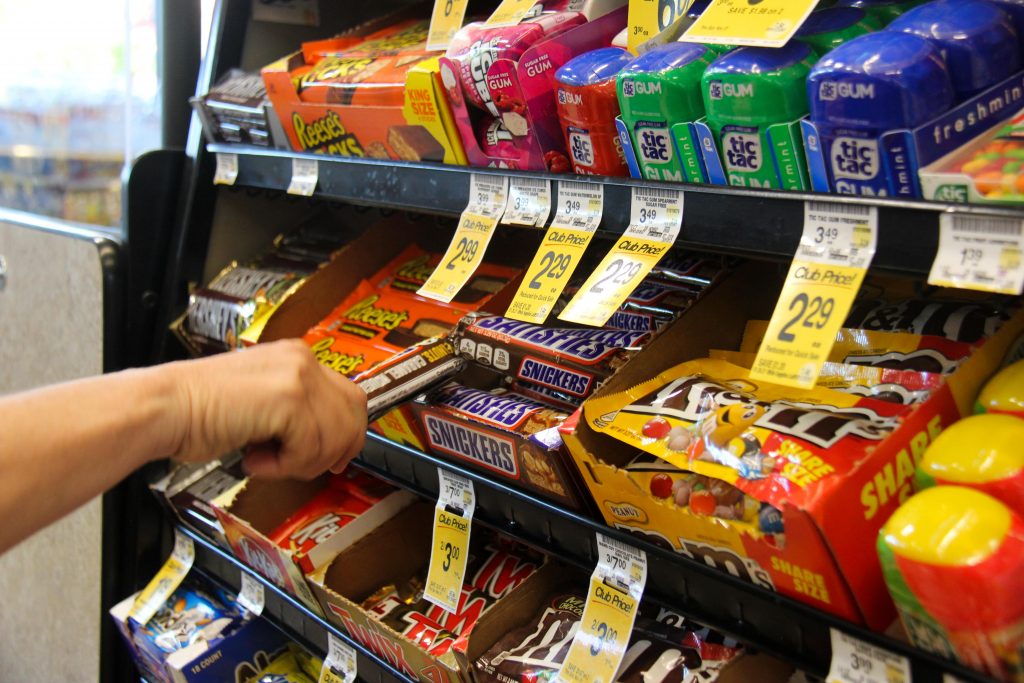On Tuesday, September 22, Berkeley unanimously passed a new ordinance restricting the kinds of food that can be sold in checkout aisles citywide. The “Healthy Checkout Ordinance” states that stores with more than 2,500 square feet may no longer contain sugary snacks in the checkout aisle. This will mostly affect large stores such as Berkeley Bowl and Safeway.
This new restriction stemmed from the growing concern for public health in Berkeley, which has been negatively impacted by the practice of putting unhealthy or sugary foods near the checkout lines. The Center for Science in the Public Interest (CSPI) states, “Placing foods in prominent places in retail stores increases their visibility, accessibility, and sales. Retailers can nudge customers to select healthier options or non-food items by placing them at checkout.” This new ordinance would restrict the items sold at the checkout counter to those with less than 5 grams of sugar.
Nefertiti Kelley-Farias, a health and policy coordinator at Bay Area Community Resources (BACR), is happy with this new development. “I think it’s great,” she said. “Having local policies like this [is] very important to reduce diet related diseases and health disparities. …. Sugary items are put [in checkout lines] because you are more inclined to buy something that you weren’t originally planning to in the checkout line than anywhere else.” In terms of damaging store revenue, Kelley-Farias does not think it will have any measurable effect.
When picking items in store checkout lines, some people reference something called, “Decision Fatigue,” where the quality of someone’s decisions goes down as they are required to make a lot of decisions in a short amount of time. This phenomenon is evident in instances such as a trip to the grocery store. By the time someone makes it to the checkout aisle, they aren’t as in control of their decision making, meaning that they are more likely to purchase unhealthy snacks.
Berkeley Target Manager Stacy Michelle thinks that this new ordinance will have a positive effect on Berkeley’s community. “I do think that people should make healthier decisions when it comes to what they eat, but at the end of the day it’s their choice,” she said. In terms of business revenue, Michelle doubts it will be affected at all. She explained, “We might get a little bit of [negative] feedback, but other than people just asking where the new location is, I don’t think [people will be upset].”
The ordinance will also affect stores such as Target, Walgreens, and CVS, as well as many others. The ordinance is not necessarily meant to stop people from buying sugary snacks, but rather keep people from making unhealthy impulse buys. It wasn’t the most controversial of decisions, with a unanimous vote in favor of the new ordinance. It is unlikely that these new rules will have a negative effect on business.
In response to this, stores may put candy as close to checkout as possible, without technically being in the actual checkout. However, the restricted location is likely to have positive effects on the health of Berkeley residents. After the implementation of the Berkeley soda tax, residents cut their soda consumption down by as much as 50 percent. There is a high likelihood that this ordinance will lead to a similar result.


